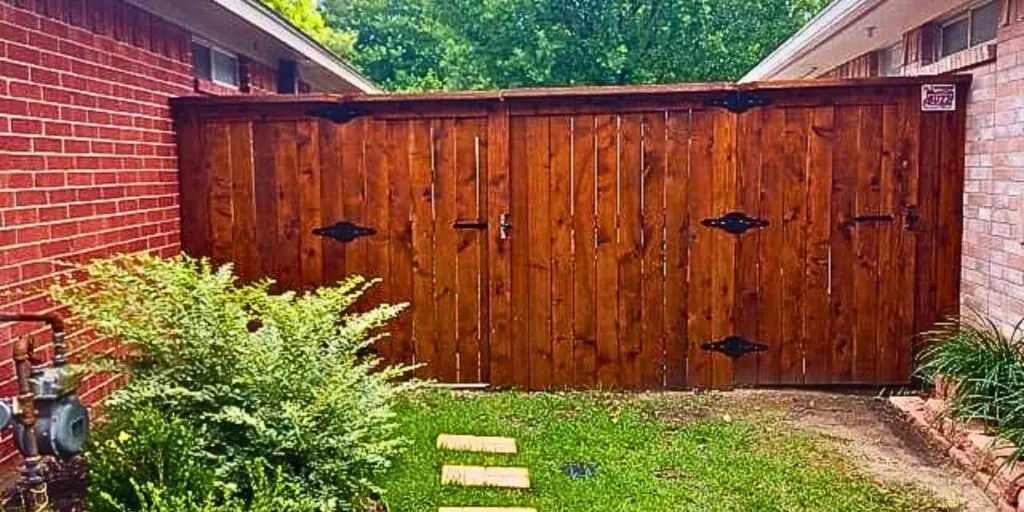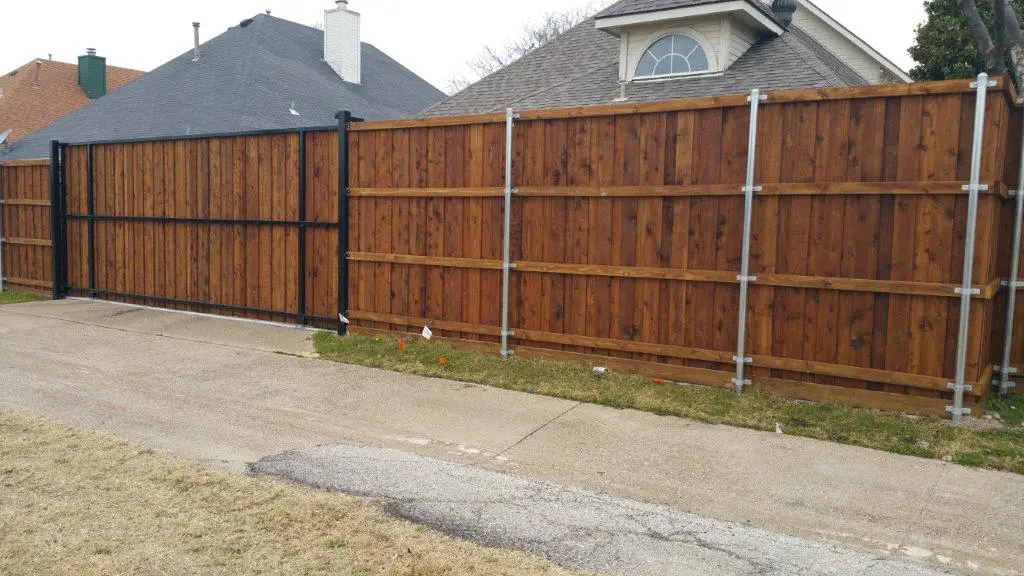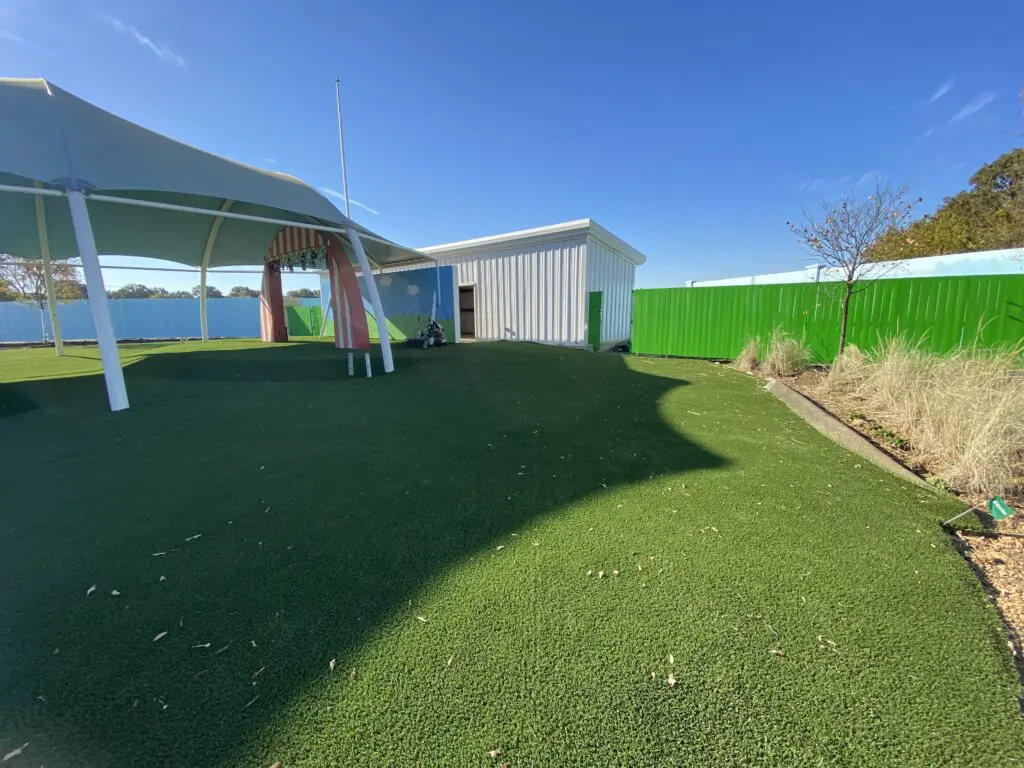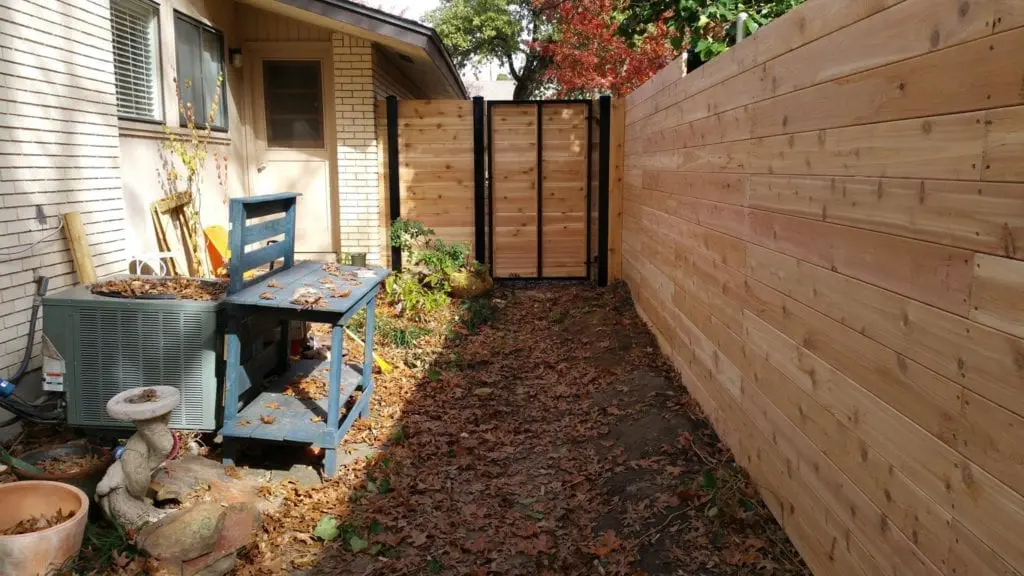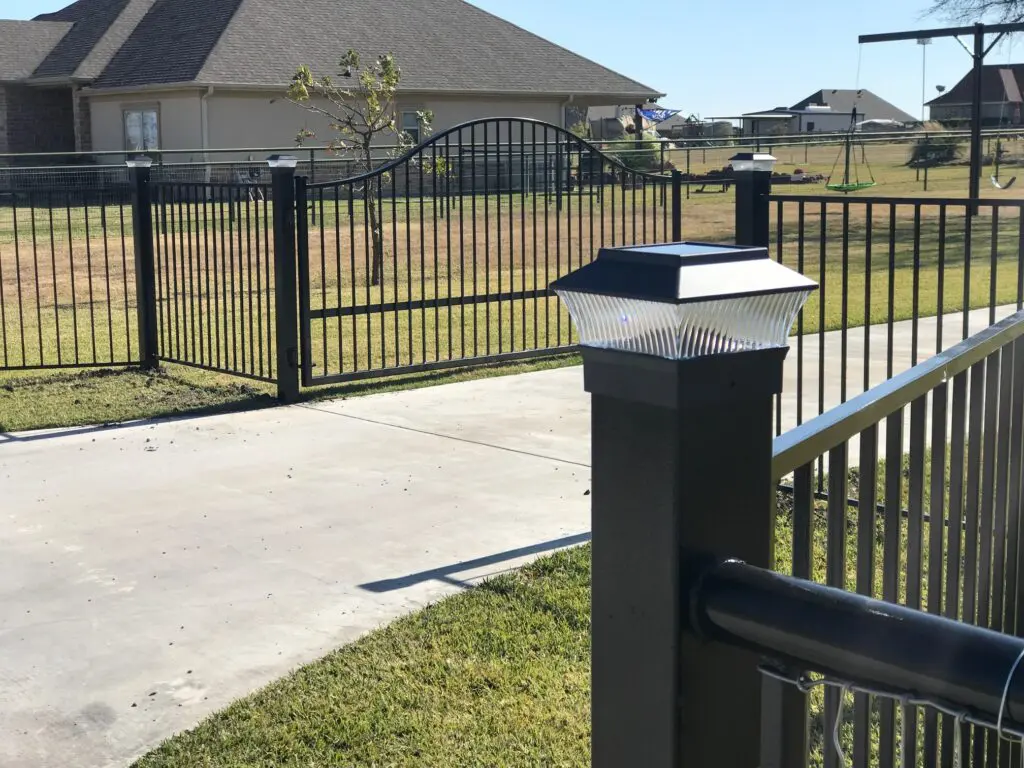Most fencing materials work well in any climate as long as you prepare and maintain them properly. However, some materials are more resistant to Texas’s climate than others. In this article, we’ll explore the best types of fences for Texas weather.
What Fences In Texas Have to Face
Texas covers a large area, which means there are actually multiple climate zones within the state. For that reason, fences in Texas need to be highly versatile in terms of the types of weather they can withstand. The conditions your fence is likely to face include the following.
Humidity
Many of the most densely populated areas in Texas—including the cities we serve—are within the humid subtropical area of the state. Dallas, San Antonio, Austin, and Houston all face high levels of humidity year round, and that can be detrimental for certain fencing materials.
Lots of Life
With humidity come fungus, mold, and insects. Termites are an especially common problem in Texas, resulting in an annual expenditure of about $200 million to $300 million per year to repair or prevent the damage they cause. Because of this, fencing in Texas needs to be resistant to termites and other pests.
High Winds
Texas is also subject to fairly high winds. Dallas, for instance, has wind year-round that averages to a wind speed of 10.7 miles per hour, which is actually higher than Chicago. Naturally, wind is tough on fences, so yours will need to be built to withstand heavy gusts.
Extremes in Temperatures
Finally, there are extremes in temperature throughout the state. Texas can get especially hot during the summer, with high temperatures exceeding 110 degrees Fahrenheit during the harshest years. However, northern Texas also experiences colder temperatures as well, so your fence needs to be able to withstand the winter months as well.
Best Outdoor Fence Material for Texas Climates
The best types of fences for Texas homes and businesses need to be able to withstand humidity and weathering, resist heat, and stand up to the elements. While it’s possible to make most materials work in this climate, there is one that stands out: vinyl.
Vinyl Is King
Being completely synthetic, vinyl fencing is highly resistant to the elements. It doesn’t absorb moisture, isn’t subject to mold or termite attacks, and is completely weatherproof, making it ideal for Texas weather. On top of that, it’s very low maintenance—you only need to clean it every once in a while, and it will last you decades.
Advantages of Vinyl Fencing Over Other Materials
The polyvinyl compounds used in modern vinyl fencing give it many advantages over other materials. These advantages include the following:
- Doesn’t conduct heat: Vinyl fencing doesn’t conduct heat, which means it won’t warp on hot summer days.
- Resistant to moisture: Unlike wood, vinyl doesn’t absorb moisture, and unlike metal, it won’t rust.
- Never decays: Vinyl will never, ever decay.
- Minimal maintenance: Vinyl fencing doesn’t require much maintenance aside from occasional cleaning to get dirt off or to repair incidental damage.
If you want a fence that will hold up to Texas weather, then vinyl is your best bet.
What About Wood or Metal?
While it’s straightforward to make a vinyl fence that will withstand the elements, wood and metal fencing can still work in a Texas climate. It just has to be made with quality materials and treated properly.
For instance, western red cedar is ideal for hot and humid climates since it doesn’t conduct heat as much as other wood species while being resistant to moisture and bugs. Metal fencing is also highly resistant to the elements with the exception of moisture, but that can be resolved with the right coating and maintenance.
FAQs on Fencing in Texas
How long do fences last in Texas?
Most fences can last a couple of decades or more if they’re properly maintained.
Do fence boards shrink or expand due to the weather?
It depends on the material. Untreated wood absolutely will expand and contract with the weather, whereas treated wood and vinyl will not.
Does vinyl fencing fade in the sun?
Anything colorful will fade over time if left in direct sunlight. It’s a gradual process, however, so it shouldn’t be noticeable.
Do vinyl fences warp in the sun?
If they are made with modern materials, vinyl fences will not warp in sunlight.
The Best Fences of Texas – Buzz Custom Fence
If you’re considering a fence for your Texas home or business, Buzz Custom Fence offers quality fence installation in Dallas, San Antonio, Houston, and Austin. Get in touch to learn about our services, or call us for a free estimate on your project.

